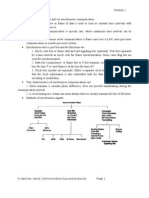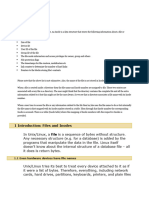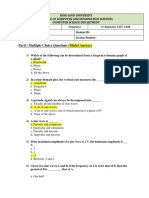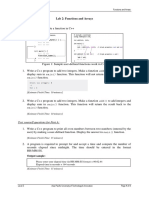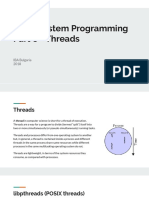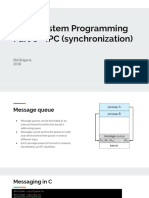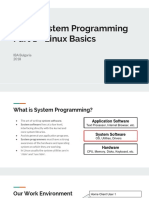0% found this document useful (0 votes)
185 views17 pagesLinux System Programming Part 3 - Filesystem and Files: IBA Bulgaria 2018
This document discusses Linux file systems and file processing in C. It covers key concepts like inodes, file descriptors, buffered vs unbuffered I/O, file opening/reading/writing/seeking, sparse files, and file locking. It provides code examples for opening and closing files, reading from a file, writing to a file, creating a sparse file with holes, and locking a region of a file for exclusive access. The exercise at the end describes a program that should generate a file with a specified number of random-length words using functions from another source file.
Uploaded by
Калоян ТотевCopyright
© © All Rights Reserved
We take content rights seriously. If you suspect this is your content, claim it here.
Available Formats
Download as PDF, TXT or read online on Scribd
0% found this document useful (0 votes)
185 views17 pagesLinux System Programming Part 3 - Filesystem and Files: IBA Bulgaria 2018
This document discusses Linux file systems and file processing in C. It covers key concepts like inodes, file descriptors, buffered vs unbuffered I/O, file opening/reading/writing/seeking, sparse files, and file locking. It provides code examples for opening and closing files, reading from a file, writing to a file, creating a sparse file with holes, and locking a region of a file for exclusive access. The exercise at the end describes a program that should generate a file with a specified number of random-length words using functions from another source file.
Uploaded by
Калоян ТотевCopyright
© © All Rights Reserved
We take content rights seriously. If you suspect this is your content, claim it here.
Available Formats
Download as PDF, TXT or read online on Scribd
/ 17
